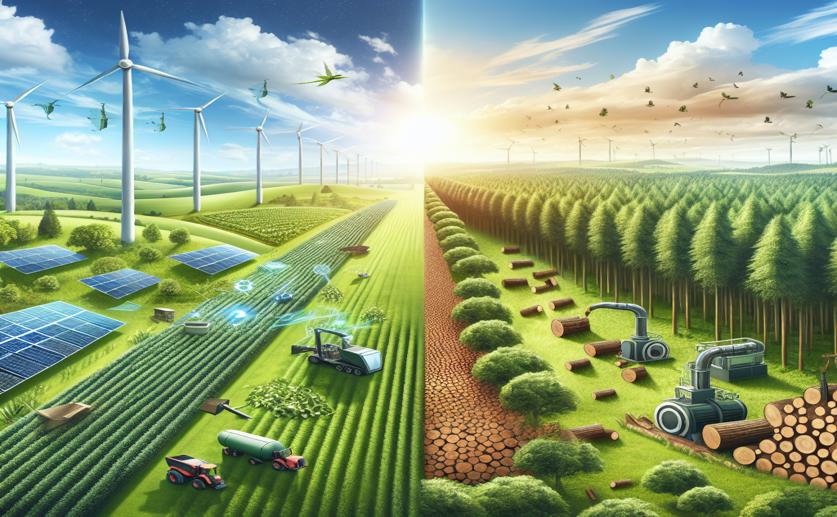
How AI Enhances Bioenergy from Farms and Forests
Greg Howard
1st March, 2024

Image Source: Natural Science News, 2024
Key Findings
- Study from Polytechnic Institute of Viseu shows how digital tech boosts bioenergy production from biomass
- Digital tools help predict and optimize bioenergy, making it more efficient and sustainable
- The research provides a roadmap for future strategies to integrate digital advancements in bioenergy
References
Main Study
1) Bioenergy relations with agriculture, forestry and other land uses: Highlighting the specific contributions of artificial intelligence and co-citation networks.
Published 29th February, 2024
https://doi.org/10.1016/j.heliyon.2024.e26267
Related Studies
2) A review of biowaste remediation and valorization for environmental sustainability: Artificial intelligence approach.
3) The development of input-monitoring system on biofuel economics and social welfare analysis.
4) Robust paths to net greenhouse gas mitigation and negative emissions via advanced biofuels.



 18th January, 2024 | Jim Crocker
18th January, 2024 | Jim Crocker